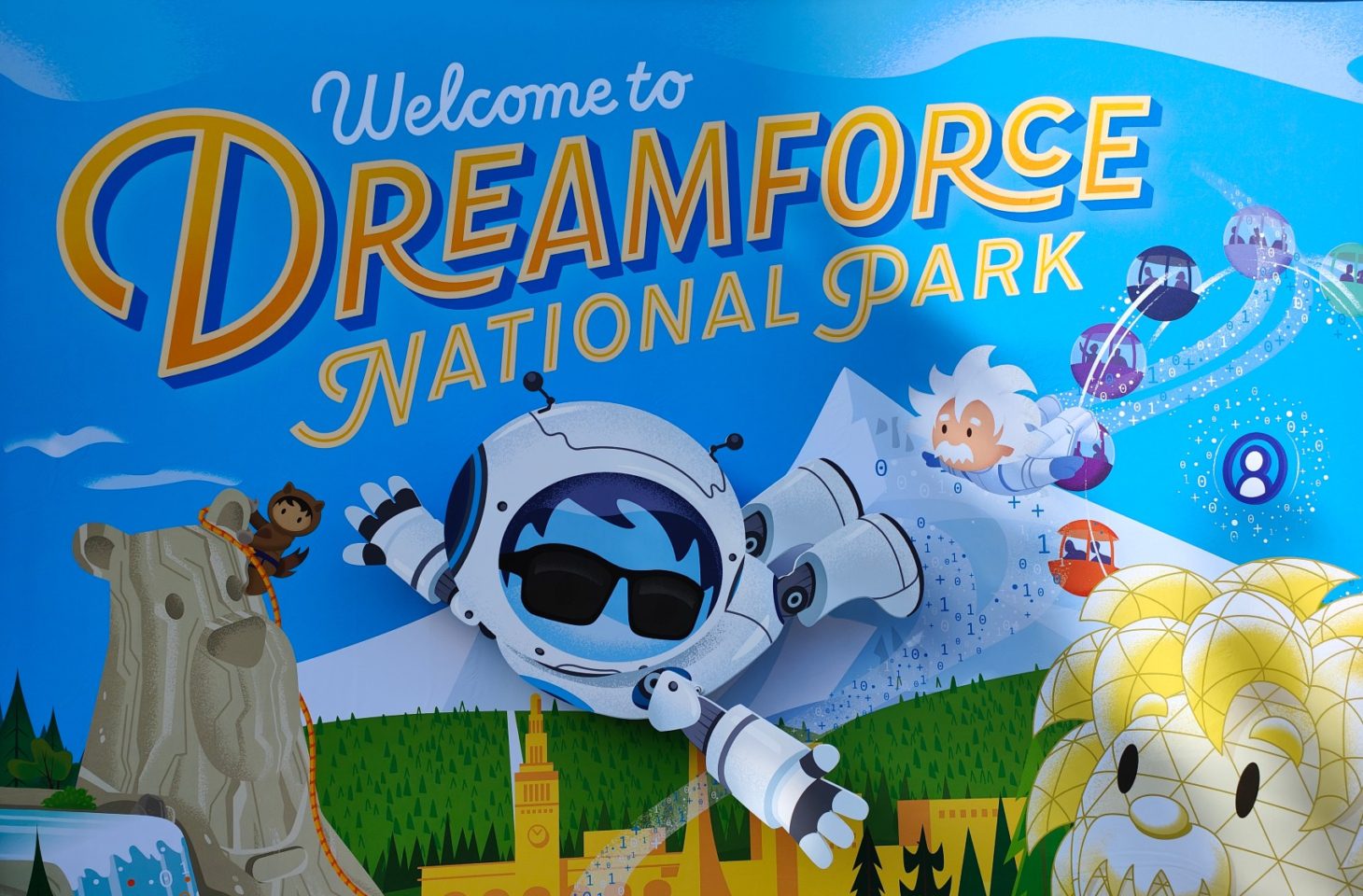Salesforce isn’t losing sight of the midsize business at Dreamforce 2024. Although the big Agentforce announcement on stage will be illustrated primarily with corporate examples, the company expects quick results from smaller companies.
“If there is one thing that SMEs are good at, it is being able to innovate quickly.” This is what Giovanni Crispino, Head of EMEA ESMB for Salesforce, says. He believes that this will give small and medium-sized companies the opportunity to distinguish themselves with Agentforce.
Future of AI?
Salesforce is building its Dreamforce conference around Agentforce. CEO Marc Benioff and CEO of Salesforce AI Clara Shih appear on stage several times to explain the power of the solution: Agentforce is about AI-controlled agents who live in the Salesforce environment and can independently complete tasks based on company data.
Salesforce believes it controls the future of AI and backs this up with examples from larger companies such as Saks Fifth Avenue: a large American clothing chain. However, the Dreamforce conference also features many Belgian customers and partners, mostly representing smaller companies. What does Agentforce mean to them?
The key to the disruption
Crispino points out first and foremost that Salesforce is consistently geared towards medium-sized businesses. “We have an internal team that focuses exclusively on the SME market. Of course, we work with specialized partners, but we are also in direct contact with smaller companies.”
I wouldn’t be surprised if small businesses started disrupting the market.
Giovanni Crispino, Head of EMEA ESMB Salesforce
He expects Agentforce to have a major impact on the performance of SMEs. “I wouldn’t be surprised if small businesses started to disrupt the market. SMEs will have the opportunity to operate at an enterprise level.” Crispino is thinking, for example, of companies that can use agents to set up new and personalized campaigns every week, on a scale that was previously not possible.
Agent Force vs. DIY and Copilot
Agentforce has the potential to democratize AI for companies of all stripes, as long as they are in the Salesforce ecosystem. After all, there are currently few ready-made options. Anyone who wants to integrate AI models into workflows still has a lot of tinkering to do. Benioff calls this “DIY AI” and presents it as a black-and-white segment of an infomercial. He also doesn’t think much of co-pilots.
When it comes to adapting AI, projects are indeed expensive and offer little guarantee of success. (Generative) AI is still in its infancy, so this should come as no surprise. According to Benioff, copilots are hardly better than Clippy, even if that is an exaggeration. From customers at Dreamforce itself, we hear a more nuanced picture: copilots like Microsoft’s seem to be popular in the right scenarios. Developers in particular benefit greatly from them.
However, a copilot is an assistant, while an agent is autonomous. Creating autonomous workflows is usually subject to customization and is less accessible to SMBs. Agentforce, on the other hand, will be available to all Salesforce customers starting next month and does not require any special development skills.
Quickly departed
“The technology is low-code and live with customers today,” Crispino continues. “With a partner, you can build an agent in no time. Everyone will have a use case to start with, and one day they might be ready.” Agentforce itself is also pricing based on consumption, so customers can get started with their existing subscriptions. Please note: The core stack is essential.
Salesforce insists that Agentforce integrates immediately with the existing environment: data in the data cloud, automations in flows, APIs, Mulesoft… All the work that a company, large or small, has already done remains relevant for agents. This is precisely why small companies can, in theory, introduce AI via agents in production so quickly and with tangible impact.
(Not) for everyone
In this way, Salesforce is democratizing AI and making truly productive AI applications available to companies of all sizes in a manageable way. That is, if those companies are Salesforce customers. We must not lose sight of this detail. According to Benioff-Ohana, Agentforce will work easier, faster and better than any alternatives because of its integration with the entire Salesforce platform.
On the other hand, you have to already be a (delighted) customer. The deeper you are in the ecosystem, the faster you can realize value. In fact, Salesforce enables its customers to gain an advantage. SMEs that have adopted Salesforce can now challenge companies that have not. And who else needs to jump on the bandwagon? They can turn to an enthusiastic Crispino or someone from his team.














